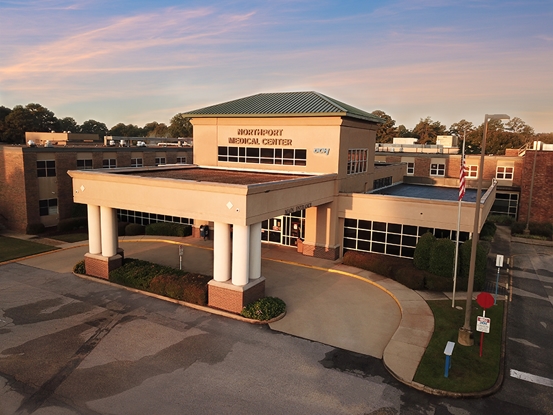Outpatient Rehabilitation Programs in Tuscaloosa
Helping Patients Achieve Maximal Independence & Mobility
Outpatient Rehabilitation is a comprehensive therapy program that may include a combination of physical therapy, occupational therapy and/or speech-language therapy for patients of all ages. Individualized therapy programs may consist of one or any combination of these disciplines and is provided in one convenient location at the DCH Rehabilitation Pavilion. Services are provided by a team of trained therapists experienced in rehabilitation for stroke, traumatic brain injury, spinal cord injury, balance disorders, amputations, fractures, joint replacements, Parkinson’s disease, other neurological and orthopedic disorders, and pediatric diagnoses.
Outpatient rehabilitation offers several specialty programs:
- Driving Program – Driving evaluations are performed by a Certified Rehab Driving Specialist to test the functions necessary to be a skilled, safe driver. These functions include visual screening, physical assessment, brace reaction, cognitive testing (memory, attention, and problem solving), road sign evaluation, and behind-the wheel assessment with adaptive equipment.
- Body in Balance – Many neurological and orthopedic conditions can produce balance problems that can be addressed through balance retraining. Areas addressed include postural control, range of motion and flexibility, strengthening, perturbation training, dynamic gait activities, and environmental hazards.
- Amputee/Prosthetic Program – The amputee/prosthetic services can begin immediately following surgery and continue with training and fitting of the prosthesis. Therapists work in conjunction with the prosthetist to ensure proper fit and mobility using the prosthesis so the patient can return to many activities of their daily lives.
- Visual Compensatory Training – Often a person can begin having difficulty reading, writing checks, walking, dressing, bathing, cooking, driving, and other daily tasks and not realize that visual changes may play a role in this type of functional decline. Visual retraining and the teaching of compensatory strategies help clients see and perceive their environment, thereby helping them better complete routine tasks.
- Dysphagia Program – Swallowing difficulties (dysphagia) can be evaluated to determine the type, extent, and severity of the disorder. Video-fluoroscopic swallowing evaluations performed by a radiologist and a speech therapist help guide treatment and diet. VitalStim, a form of non-invasive electrical stimulation, can be used for the safe and effective treatment of swallowing disorders.
- Cognitive Therapy – Many people with cognitive and/or memory deficits may benefit from individualized cognitive therapy to assist them with the ability to problem-solve, reason, and judge.

